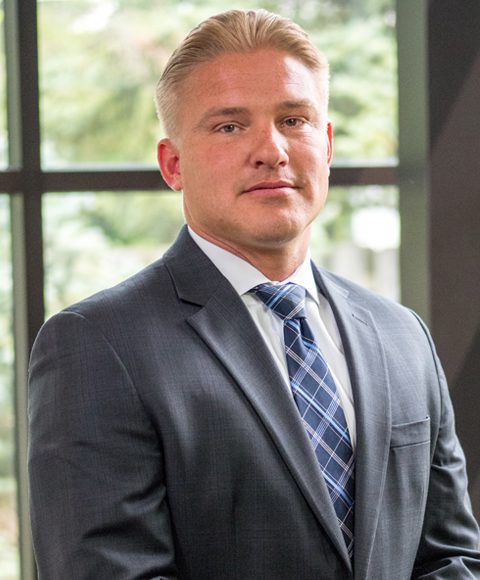The NDAA 2023 required that DFAS conduct an open season to allow anybody not currently participating in the Survivor Benefit Plan (“SBP”) program to update their elections. Also, those currently participating now have the opportunity to opt out. An individual’s rights during the Open Season hinge on whether they are currently participating in SBP. DFAS has implemented a clearly flawed interpretation of “SBP participation” and is wrongly denying eligible veterans. Why is DFAS denying eligible veterans?
SBP Participation
In drafting the NDAA, Congress failed to clarify the meaning of the word “participation”. Naturally, Congress intended “participation” to be interpreted as anybody currently participating in some way, such as paying premiums for SBP or having a beneficiary who might collect SBP if the veteran passes away before the beneficiary. Congress clearly did not intend for “participation” to include veterans who are currently not participating in any way. In an apparent attempt to limit benefits or out of sheer laziness, DFAS has interpreted “participation” to include individuals who previously made elections and paid the full premiums for individuals who can no longer be beneficiaries. DFAS is denying requests from veterans who want to elect their current spouse as a beneficiary if that veteran previously failed to submit an election within one year of their marriage. In doing so, they are blatantly ignoring congressional intent and denying benefits to future surviving spouses of veterans who risked their lives for this benefit.
Discontinuing SBP Participation
Congress included a provision in the NDAA 2023 for individuals who want to discontinue SBP participation. In that provision, Congress specifically addressed the steps that must be taken by a veteran who intends to discontinue SBP participation. Congress laid out requirements for veterans to seek permission or approval from the beneficiary who might receive future annuities, as outlined in the SBP program. Congress also laid out requirements for veterans who have potential beneficiaries that they are unable to establish communication with. Congress intentionally chose not to include veterans who no longer have any potential beneficiaries or annuitants because those veterans are clearly no longer participating in SBP. Congress intentionally left this group of eligible veterans out because it intended for these individuals to correct or make a new election during this Open Season. This is the sole purpose of the Open Season.
DFAS’ Current Policy in Action
DFAS is prejudicing veterans and intentionally disregarding congressional intent. There is a scenario playing out that will devastate the lives of thousands of surviving spouses—the same spouses that Congress was hoping to help with the passage of the NDAA 2023. Consider this scenario.
A veteran who retired from the military decades ago and elected children only as beneficiaries cannot make an election during Open Season. Veterans are nearly always told during retirement out processing that they will be able to change their election during an Open Season, which could be true but for the decades that have passed without an Open Season. Nearly all veterans are unaware that they can make a new election within one year of a qualifying life event, such as marriage to a new spouse. This same veteran paid all the premiums required of him, and his children very quickly aged out of SBP (there is an age cap for child beneficiaries). Now, the same veteran has forfeited a large portion of his retirement benefits for SBP, but he is unable to name a beneficiary who might receive the annuity upon his passing. Congress finally pushed for a long overdue Open Season to address this injustice, but the agency responsible for processing elections—DFAS—implements a policy with a clearly erroneous interpretation of “SBP Participation” that is detrimental to these veterans. If the veterans all made their elections within one year of a qualifying life event, there would be no need for an Open Season. They did not, so Congress finally required an Open Season to allow these veterans to correct their elections. It’s the sole purpose of the Open Season contemplated in the NDAA 2023.
The veteran discussed above cannot make a new election because DFAS claims he is currently participating in SBP. He is making no premium payments as he has paid the full amount. He has no potential beneficiary or annuitant because his children quickly aged out, and he was unaware of the policy allowing him to name his current wife within one year of their marriage. After learning of his mistake, this veteran has waited decades for an Open Season—this Open Season. If veterans all made timely elections, there would be no need for an Open Season. With age, comes disease and illness, especially for those exposed to toxins as a result of their military service. This veteran is likely battling cancer or some other terminal illness by now. Clearly, this veteran is not participating in SBP in any way. He receives a monthly retirement statement that expressly states, “NO SBP ELECTION IS REFLECTED ON YOUR ACCOUNT”. Clearly, he is not a participant, but DFAS ignores all this information and denies his request to make a new election. Soon, the Open Season will end, and these veterans will die without being able to support their surviving spouses.
This same veteran cannot discontinue “SBP Participation” and make a new election under DFAS’ flawed interpretation of the NDAA 2023 because there is no beneficiary or annuitant to contact for permission to discontinue. There is no beneficiary or annuitant because the veteran has no SBP election reflecting on his account. DFAS doesn’t even have the decency to send individualized responses to service members explaining the reasons for the denial. They act as if the lives of surviving spouses aren’t important enough for them to accomplish this task, and they instead send an apparent blanket denial letter with very little detail or explanation.
We are currently fighting DFAS to correct this flawed interpretation. We will not stand by without action and watch DFAS implement its current policy, which appears to be a “Deny until they die” policy. This policy will devastate the lives of thousands of eligible surviving spouses. We are currently representing multiple veterans who find themselves in this situation. We are fighting DFAS directly, and we are contacting congressional representatives to urge them to take action to enforce their guidance contained within the NDAA 2023. It is likely that this battle will be fought and won in Federal Court, but it will be too late for many eligible veterans and surviving spouses. Steps must be taken now by veterans, spouses, and their advocates to create a record of the request and preserve this benefit for the future.
As a Managing Partner at Tully Rinckey PLLC, a First Sergeant in the United States Army Reserve, and a combat veteran, Anthony Kuhn focuses much of his time on the representation of military personnel, federal employees, and federal agents. He can be reached at info@tullylegal.com or at (888) 529-4543.








